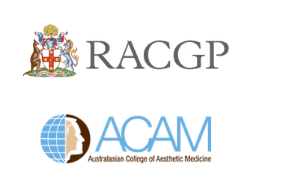Skintips with @drjemimagrant
It seems like every second skin clinic is offering a depigmentation peel. But before you commit to an expensive treatment, I really encourage you to educate yourself on what these peels actually do and to consider having treatment with a reputable clinician who can offer you a accurate medical assessment and long term care. Don't get me wrong, Cosmelan® and Demamelan® get phenomenonal results for many patients, but they are not a 🌈 miracle.!
Myth #1 : It's just a peel.
Depigmentation programs are not "just a peel". They are a 4-month intensive commitment to your skin, and may involve significant downtime (redness and swelling), diligent home care and sun avoidance (heads up - the journey continues post peel- see myth #2).
4 weeks post cosmelan to treat post inflammatory pigmentation. This patient received inappropriate IPL treatment at another clinic.
Myth #2 : Cosmelan® cures pigmentation
Sorry to disappoint, but Cosmelan® is not a cure for anything.
For most of you, the reason you had pigmentation in the first place is complex - and it is not solved by a peel. It is likely your skin will pigment again unless you stay on a pigment inhibitor long term and maintain your results with in clinic treatments. Even if it looked flawless at week 8!
Pigment inhibitors down regulate melanocytes from producing pigmentation. See blog on Tyrosinase Inhibitors for more specific information. My favouritess include a 4-month annual course of modified Kligman’s cream (this is a compounded & prescribed medication), and twice daily use of SKin Better Science Event Tone Correcting Serum from Skin Better Science. I will also add in a short course of oral tranexamic acid (an exiting new payer in the field of melasma, that shuts down the vascular supply to the melanocytes and can get amazing results for difficult to control melasma). This is especially important for dermal pigmentation or for when I choose to treat your melasma with a laser. I also advise patients to exfoliate regularly.
It’s also important to be realistic and consider that your pigment will probably return, but less so if you continue a regular maintenance home including diligent SPF daily (I reccomend a daily pigmented SPF 50+ - my favourite is Melan 130). Make sure you are using enough SPF. You will probably need a treatment every couple of years- e.g. a repeat depigmentation peel, or a consistent medical peels/ Q switch laser 2- 3 years. Everyone gets their own plan- you are not a robot.
If you are considering spending onwards of $2000 on a peel, I strongly recommend seeing a doctor/dermatologist with an interest in pigmentation to come up with a long term plan to keep your pigment at bay. We may be boring, and we are not very good at marketing ourselves, but if you have PIH (post inflammatory hyperpigmentation) or melasma, you have a long road ahead and you're going to need medical support.
Moreover, it’s sad but true- just because clinics offer Cosmelan and Dermamelan, it does not mean they know much about skin- the company makes a lot of money and is willing for any clinic to stock their peels! I know, as I often see (disappointed) patients a few years later who have had no education or discussion about even the basics (as above- SPF + long term tyrosinase inhibitor). This infuriates me.
Myth # 3: I'm cured after my peel I don't need to use sunscreen or to stay out of the sun
No matter what peels and homecare you use, the sun (UVA) activates melanocytes. Not wearing sunscreen and/or exposing your skin to the sun will stimulate your melanocytes to produce pigment. It's just a fact. The MOST important factor to manage long term pigmentation is sunscreen. Adequate SPF ALONE (2- 3ml twice a day) can reduce pigmentation by up to 50%. So, before you do anything, invest in a quality sunscreen, and make sure you are using an adequate amount. The only bad review I’ve had on google (still there to this day:) was from a patient who flat out admitted to not using SPF or using the post care products, and never returned to the clinic for Healite or dermal therapy followup. I learnt a lot from this and I now do not perform the peel on patients who are not suitable and have unrealtstic expectations about basic physiology (ie it wont work if you don’t wear SPF) - it’s not a miracle.
Cold Hard Truth #1 : Australia = Pigment
We live in Australia, which has very high levels of UVA radiation, all year round. Even if you do wear sunscreen religiously, do your fancy peel and get amazing results, you will get pigmentation concerns again. Especially if you are a healthy person who spends time outdoors and at the beach. The only other option you have is to become a vampire.
Cold Hard truth #2: There are other treatments for pigmentation!
This one may shock you, especially if you get your medical advice from your injector or beautician, who have not advanced their training into pigmentation and dermatology (injectors just learn to inject, they have no dermatology training).
You do not need Cosmelan® to treat pigmentation!
I said it.
The boring approach to successful management of pigmentation is a medical approach. The first step is a history (which needs a consultation, in person), an assessment and (if possible) a diagnosis. I invite you to come in, show me your skin, discuss your concerns and we can come up with a plan together. This may require a referral to a dermatologist.
The second step is education and expectation management - if you have melasma- it’s a chronic, meaning long-term, skin condition.
The next step is discussing options - be prepared to be a bit overwhelmed at first (I'll give you notes to take home). I want you to be informed and to take an active role in your skin journey.
Management options involve changing your lifestyle, addressing contraception, oral pigment inhibitors, topical prescribed home care, topical cosmeceuticals, peels, laser AND sometimes we do end up choosing Cosmelan® or Dermamelan® as part of that journey- but to get here, it's a planned choice, with reasonable expectations.
We also have a long term treatment plan, with patients returning to the clinic for followup, to rotate prescribed medication (if you stay on the same prescribed home care long term you can get worsening of pigmentation), and to address the bumps and hurdles life throws at you like stress, medical issues, new relationships, pregnancy, menopause, holidays at the beach and the myriad of other triggers that can cause an exacerbation of melasma.
So, the truth is out. Cosmelan® is a a journey. It is great treatment, but it is not a cure. It is not the only treatment option and if you choose to go ahead with it you need a long term, medically guided plan to maintain the results.
🌿 Rant over 🌿






